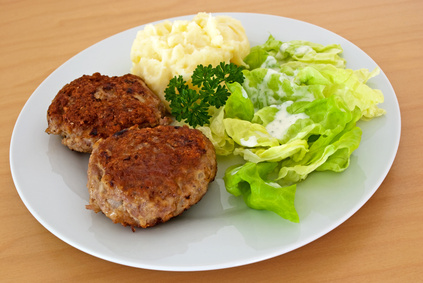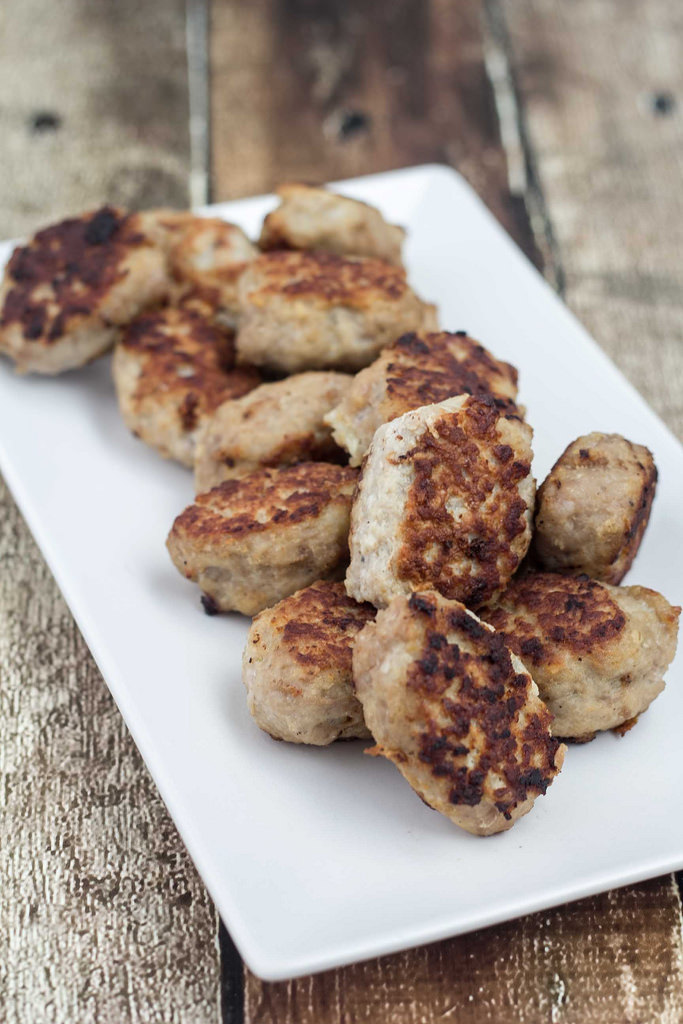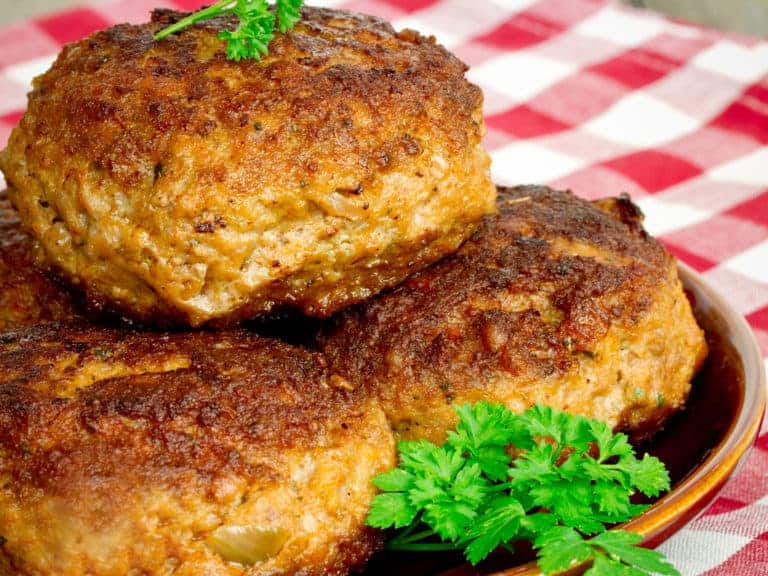Frikadeller
frikadellen, fleischpflanzerl
A frikadelle[a] is a rounded, flat-bottomed, pan-fried meatball of ground meat, often likened to the German version of meatballs. The origin of the dish is unknown. The term Frikadelle is German but the dish is associated with German, Nordic and Polish cuisines. They are one of the most popular meals in Poland, where they are known as kotlety mielone . There are various local variants of frikadelle throughout Scandinavia, as both a main course and a side dish. In Sweden, the word frikadeller refers to meatballs that are boiled, not pan-fried. The origin of the word is uncertain. According to the Etymologisches Wörterbuch des Deutschen, Frikadelle (pl. Frikadellen) can be found end of the 17th century in German, and is related to the French fricandeau, and Latin frīgere ('to roast'). Other variants used in Germany are Boulette/Bulette, Bratklops, Fleischpflanzerl, Fleischlaberl, Fleischküchle and Grilletta [de]/Grillette as well as the Austrian Faschiertes Laibchen [de]. It may be derived from fricandeau de veau, a dish of sliced veal, larded with pork fat. In the Dictionnaire des dictionnaires (1837) fricadelle is defined as, "In Belgium, a ball of ground, cooked meat" and a separate word, fricadèle, is defined as fricandeau. And in Phillips's New World of Words (1706) it is defined as "Fricandoe, a sort of Scotch Collops made of thin slices of Veal, well larded and stuff'd." The Oxford English Dictionary defines fricandele (variation fricadelle) as a "quasi-French form of fricandeau".
Source: Wikipedia

:max_bytes(150000):strip_icc()/basic-frikadellen-1447071-hero-01-c3eb2089c00e46edae1c37ec4c51682a.jpg)









